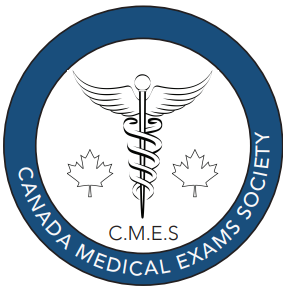Mental Health Is Important!
Mental health is an important part of your physical healthcare and personal well-being. According to the Public Health Agency of Canada, mental illnesses are characterized by changes in thinking, mood, or behaviour associated with significant distress and impaired functioning. Moreover, mental illness can take many forms. Examples: mood disorders, schizophrenia, anxiety disorders, personality disorders, eating disorders, or substance dependency.
It is important to know that no matter how you are feeling, you are not alone. There is help out there.
In this article, we will learn about mental health issues, the benefits of seeking help and mental wellness supporting societies in Lower Mainland B.C. The estimated read time is 6 – 8 minutes.
Mental and Behaviour Health Learning Centre
Firstly, mental health can refer to a wide range of conditions that affect how you think, feel, or interact with other people. In fact, the list of conditions that fall under the mental hygiene umbrella is extensive, and finding the information you need may be overwhelming. Furthermore, the Mental and Behaviour Health Learning Centre has mental health information in one place so that you can easily find what you are looking for. Hence, you can visit the website or alternatively call 811 to speak with a health services navigator, available 24/7.

Ongoing Coronavirus Disease and Mental Wellness
COVID-19 can make us feel confused, sad and anxious. Self-isolation may make us feel separate from the things and activities we use to help manage our feelings. For this reason, it is good to learn about resources and supports to help you take care of yourself and your family. Learn More
It is Hard to Seek Help, We Understand
According to government statistics, nearly half of all youth ages 8 to 15 with a mental illness receive no treatment. Although a lot of studies have been conducted to determine the reasons for this disparity. Yet, there is no single answer. Actually, some reasons have to do with the environment, economics, and other overarching factors. In some cases, the mental disorder itself may create conditions that prevent the individual from seeking help. The following were identified as particular issues that made it hard to reach out:
- Stigma and Embarrassment.
- Difficulty Recognizing Symptoms.
- Preference for Self-Reliance.
- Lack of Trust.
- Feelings of Hopelessness.
Ask for Help – Tips
Remember, there is nothing shameful about seeking help. Initially, you may feel vulnerable and unsure, but asking for help is essential. Good mental health treatment will set you on a path of recovery that enables you to enjoy your life truly. Hence, here are some basic tips to help you overcome your reluctance in seeking assistance:
- Ask for help before frustration and anger take over.
- Leave behind feelings of weakness, shame, and embarrassment.
- Talk to someone you trust.
- Be clear and direct when asking for help.
- Be as positive as you can.
To learn more about mental care treatment and services, contact us

Benefits of Getting Treatment for Mental Health
Thankfully, identifying the benefits of treatment is easier than figuring out why it’s hard to ask for help. If you understand how much you have to gain, you will be more inclined to seek help.
Depending on your specific situation, there will be particular advantages to getting treatment. But considering the overall benefits of mental health treatment is a great place to start:
- Improved quality of life.
- Improved relationships.
- Reduced chance for complications.
- Better performance at school or work.
- Reduced risk for medical issues.
- Encouragement and Support.

Is It Covered by MSP?
Mental health services like counselling or therapy may be covered by your BC Medical Services Plan (MSP) when you access the service through a hospital or mental health clinic. Find your local health authority to learn more about counselling services in your area. HealthLink BC’s Find Services tool and Locator app can also help you find services. Although you often need a doctor’s referral to access these types of programs. However, without a doctor’s referral, you need to access care through the private system, which is not funded by the government.
Reach Out – Mental Health Support Societies
The following are the organizations that provide treatment, support, education, and hope of recovery for people living with Mental Health Disorders. Reach out to them
- United Way British Columbia
- Mood Disorder Association of British Columbia
- Canadian Mental Health Association
- Stigma-Free Society
- Pathways Serious Mental Illness Society
- H. R. Mnetal Welness Centre
- Coast Mental Health
Lastly, in case you are going through a mental disorder or require assistance for your mental wellness, Contact Us and we can provide you with complete care and guidance.
Thank you for reading our blog, for more click here.
Feedback and Suggestions are warmly welcome.
